#orthorexies
Explore tagged Tumblr posts
Text
Neo giving up that chicken breast lifestyle and literally everyone in the comments, including me, celebrating.
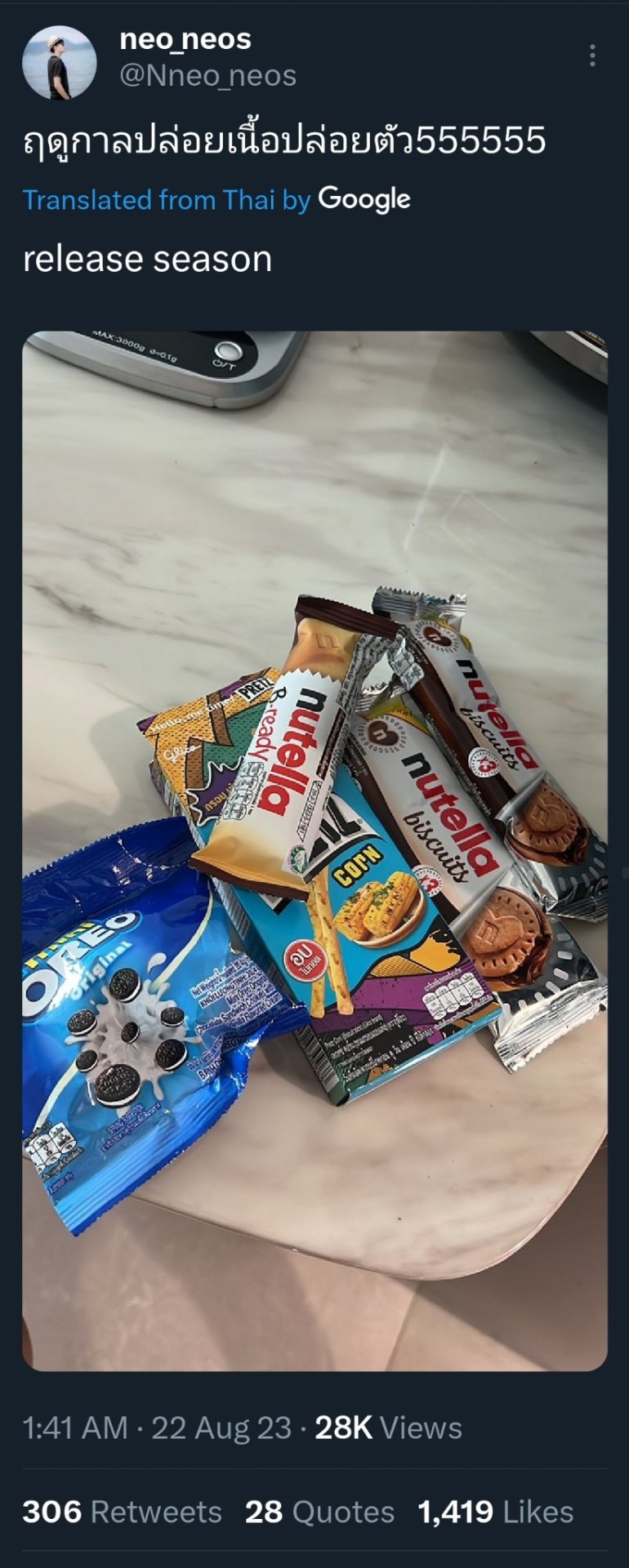
Can't live on high protein forever. I cannot tell you how happy this makes me.
4 notes
·
View notes
Text
Ich war letztes Jahr mit Freunden auf einem großen Rock- und Metalfestival. Jeder hatte sich um irgendwas gekümmert, einer besorgte ein großes Zelt, jemand brachte Getränke mit, eine wollte sich um's Essen kümmern.
Leider wurde uns wieder mal zum Verhängnis, dass wir bei Freunden keinen Background-Check durchführen, oder nicht einmal das Führungszeugnis sehen wollen.
Die, die sich um's Essen kümmern wollte hatte vor Jahren mal Orthorexie gehabt. Also, so erzählte sie das zumindest immer. Betonung auf "hatte". Jetzt tauchte sie allerdings mit unserer Verpflegung auf: Reiswaffeln, rohe Eier, Tofu und Karotten. Mit den rohen Eiern hätte man sich ja zumindest noch nen anderweitig interessanten Abend gestalten können. Aber wer, in dieser gottverlassenen Welt, kommt angetrunken vom Festivalgelände auf den Campingplatz, pfeffert den Campingkocher in's feuchte Gras und brät sich ne Tofu-Gemüsepfanne an??? Ich bin ja immer schon überrascht wenn ich motorisch noch im Stande bin den Eingang des Zeltes zu öffnen. Wenn du mir dann einen Campingkocher überreichst, endet es wahrscheinlich darin dass der Zeltplatz geräumt werden muss bevor die scheiss Möhren überhaupt durch sind.
Die Ratten verlassen ja bekanntlich das sinkende Schiff. Da mein Vorarbeiter mich damals immer als Ratte betitelt hat, tat ich es ihnen gleich, drückte den Bikern von Nebenan ein kleines Fässchen Bier in die Hand und bekam im Gegenzug Pringles und Tetrapack-Weißwein. Wochenende gerettet, Campingkochern und jeglichen Nährstoffen erfolgreich ausgewichen.
Also, Fazit: Wenn eure Freunde zu vielen Fitness-Influencern folgen ist das ein absolut ausreichender Grund für eine Intervention.
72 notes
·
View notes
Text
Apfel gut, Schoko böse: wenn gesundes Essen zur Obsession wird
dpa-Wissenschaft F &A
Gesunde Ernährung, die krank macht - dieses Paradox beschreibt Orthorexie: die zwanghafte Beschäftigung damit, das vermeintlich Richtige zu essen. Statt Genuss regiert ein strenges Regelwerk.
Weiterlesen bei t-online.de
Weiterlesen bei Freie Presse
0 notes
Text
PsyPost: Orthorexia nervosa linked to low self-esteem and high levels of obsessive perfectionism
rigid, self-imposed rules around diet that go beyond simply eating a healthy meal. Individuals with orthorexia nervosa are obsessed with the quality and purity of their food, often leading to significant dietary restrictions, nutritional deficiencies, and even social isolation due to their stringent eating habits.
0 notes
Text
Alimentation Pure ou Orthorexie ? Cétones, le Mirage de la Performance ? Alimentation, Déprime et Activité Physique
NOUVEAU PODCAST 👉 Alimentation Pure ou Orthorexie ? Cétones, le Mirage de la Performance ? Alimentation, Déprime et Activité Physique
Dans cet épisode, nous allons parler de cétones, d’orthorexie et de sport pour retrouver la santé. **NOUVEAU** : Se calmer pour un corps parfait ( méthode ) Accédez à l’espace VIP et sculptez votre corps et votre esprit grâce à des programmes exclusifs, des sujets avant-gardistes et un soutien constant pour une transformation sans effet yoyo ! Sommaire du podcast : Orthorexie ou non…

View On WordPress
#actualité alimentation#actualité nutrition#avis#bodybuilding#clash#débat#émission#émission fitness#émission musculation#La pause fitness#MÉDITATION#optimisation personnelle#podcast bodybuilding#podcast développement personnel#podcast entrainement#podcast fitness#podcast fitnessmith#Podcast musculation#podcast nutrition
0 notes
Photo
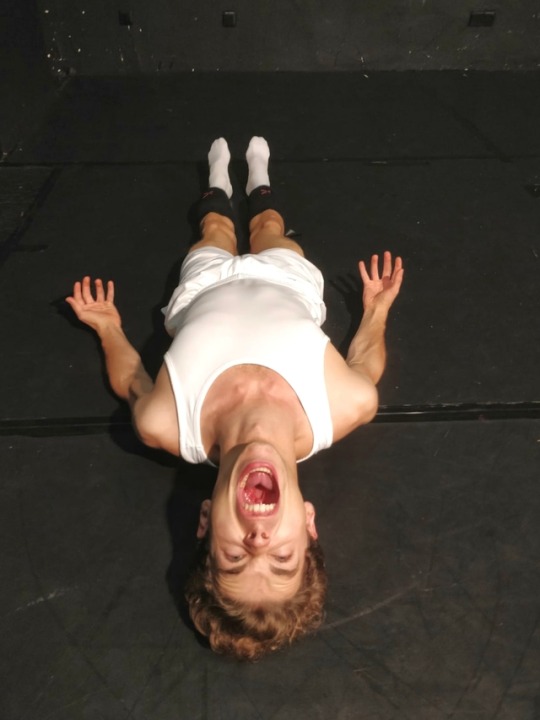
Schrei es raus! Essstörungen sind einsame, düstere und zerstörerische Erkrankungen. Hier: Proben zum Stück
#magersuchtmachtkaputt#anorexianervosafighter#antiana#bulimierecovery#bingeeating#orthorexie#lebenshilfe#augenöffnen#erkennen#sos#hungerkünstler
2 notes
·
View notes
Text
हेल्दी खाना भी कर सकता है बीमार ! यकीन नहीं होता तो जरूर पढ़ें ये खबर
हेल्दी खाना भी कर सकता है बीमार ! यकीन नहीं होता तो जरूर पढ़ें ये खबर
Healthy eating स्वस्थ खाना भी हमे बीमार बना सकता है. दरअसल कुछ लोगों को स्वस्थ खाने की लत लग जाती है, जो उन्हें बीमारी की तरफ धकेल देती है. फाइल फोटो Source link
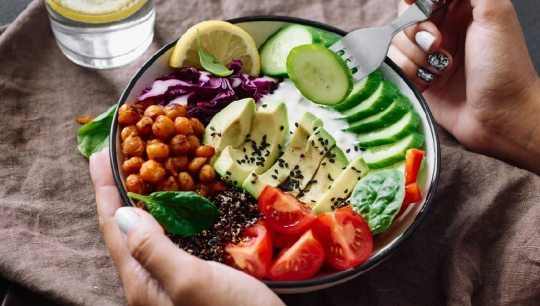
View On WordPress
0 notes
Photo
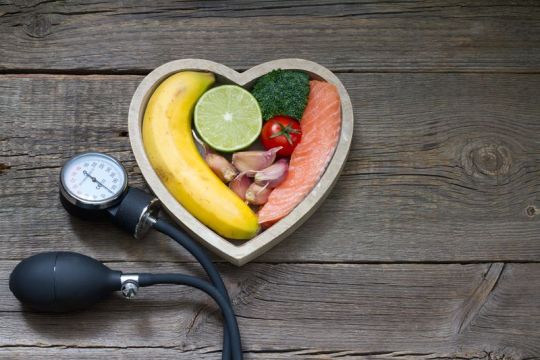
Orthorexie - Sind Sie besessen von gesunder Ernährung? - KörpervertrauenVor einigen Monaten habe ich bei Be Nourished einen Online-Kurs über Body Trust besucht. Es hat mein Denken über meinen Körper, mein Gewicht, meine Ernährung und meine Bewegung enorm beeinflusst. Ich hatte in meinen frühen 40ern einiges an Gewicht zugenommen und egal was ich tat, ni... - #besessen #ernährung #gesunder #orthorexie #sie #sind #von
0 notes
Photo

(🇬🇧below) Einfach mal das Essen worauf ich Bock habe und nicht anhand der Nährstoffdichte eine Entscheidung fällen. 🤯 Hatte heute Bock auf diese Aufback-Croissants die in so einer Rolle zum Aufdrehen kommen, kennt ihr die? 😄 Hatte die als Kind voll oft und heute plötzlich wieder Cravings danach. Also waren wir einkaufen, ich habe Tomate-Mozzarella gemacht (natürlich auch vegan), frischen Orangensaft aus Saftorangen, Kaffee, Schoko-Aufstrich und Erdbeeren serviert. Hab 4.5 Croissants gegessen und keins davon bereut. 🥐 Früher wäre das unvorstellbar für mich gewesen. Stichwort: Orthorexie (also die Angst vor ungesundem Essen). Habe dazu ein IGTV hochgeladen. ✌🏻 Wie steht ihr zu gesundem Essen? Achtet ihr sehr darauf wenn ihr euch Mahlzeiten überlegt? ___ Just eating what I crave and not basing my choices on the nutrient density. 🤯 In the past, that would have been unimaginable for me. Keyword: orthorexia (the fear of unhealthy food). I used to completely boycott some ingredients like white sugar and wheat flour and refuse to eat foods that contained these. 🙅🏻♀️ Over the years I have come to a more balanced, holistic attitude towards nutrition which excludes restrictions — if I want something, I eat it. Still knowing that healthy food is what makes me feel best, I allow myself to indulge in “junk foods” if that’s what I want. 🤍 I made tomato-mozzarella-salad (vegan, of course), served freshly pressed orange juice, coffee, chocolate spread and strawberries. Ate 4.5 croissants and didn't regret any of them. 🥐 How do you feel about healthy eating? Do you think about nutrition when you create your meals? (at Berlin, Germany) https://www.instagram.com/p/CRq97u-J3fQ/?utm_medium=tumblr
5 notes
·
View notes
Text
L’IMPORTANCE DE MA ROUTINE

J’ai toujours aimé les règles.
Dans les jeux, indispensables. J’aimais lire le règlement intérieur en début d’année scolaire, sans comprendre pourquoi les autres trouvaient ca pénible.
J’adore cuisiner. Des instructions précises à suivre, avec la possibilité d’ajouter sa touche personnelle.
J’adore monter les meubles IKEA (bon ca, c’était avant ma prise de conscience zéro déchets). Aligner tous les éléments avant le montage, lire une fois les instructions en entier avant de se lancer puis tout suivre au pied de la lettre.
J’adorais prendre le même bus tous les matins, me mettre à la même place (« ma » place, sans quoi j’étais terriblement angoissée pour la journée), croiser les mêmes personnes, dont je n’ai jamais su ne serait-ce que le prénom d’ailleurs.
Au contraire, je redoute les sports où je connais mal le fonctionnement. Je ne sais pas comment agir, à moins d’avoir lu mille pages internet concernant le sujet, juste pour m’assurer si tel ou tel geste est permis. De ce fait, j’évite les sports d’équipe.
Aussi, je me souviens le nombre de fois où, paniquée face à une consigne peu détaillée à l’école, on me disait qu’il fallait que je prenne de l’autonomie et que j’apprenne à prendre mes propres initiatives. Tout ce que je demandais, c’était un peu plus de clarté.
Enfin, je manque de flexibilité quant aux horaires. Je culpabilise pendant des jours entiers si j’ai le malheur d’être ne serait-ce que cinq minutes de retard. Alors souvent, je prends dix minutes d’avance. Et pour plus de précaution, je prends dix minutes d’avance sur l’avance. Souvent, je pars plus tôt que mon avance, « pour être sûre ». C’est comme ca qu’une fois, je me suis retrouvée avec un heure d’avance à la sortie du métro, en attendant mes amies… qui ont souvent 15 minutes de retard ! Chose que je ne comprends pas et qui, souvent, me mets en colère. C’est bête, mais je n’arrive vraiment pas à me détendre là-dessus !
En grandissant, j’ai compris que la vie n’est pas faite de règles. Sortie du lycée, je l’ai vécu de manière très violente. Sans les repères des horaires classiques de lever, débuts et fin de cours, cantine, puis retour à la maison. Je comprends seulement aujourd’hui ce qui s’est passé.
J’ai besoin de règles pour vivre.
Alors je m’en suis créé. Maladroite et encore bien naïve, j’ai tout fait à l’envers : je me suis focalisée sur mon alimentation, mon sport et mon sommeil, les trois choses fondamentales sur lesquelles je pouvais avoir le contrôle. Dans un premier temps, il ne s’agissait pas de contrôle malsain, comme ca l’est devenu, alors en quête de punition perpétuelle pour des raisons qui me restent inconnues.
Non, j’avais juste besoin d’un cadre. Tout a commencé de manière inoffensive : j’ai commencé à écrire ce que je mangeais dans un beau carnet. Pas de chiffres, je ne savais pas encore ce qu’était une calorie et à quoi ca servait (un savoir que j’ai acquis par la suite, pour mon plus grand désespoir). J’étais focalisée sur les horaires d’abord. Sur la régularité du sport. Sur mes heures de coucher et de lever. Tout devait être bien rangé.
Et puis ca a dérapé. Lentement, sans que je m’en rende vraiment compte. Je ne sais plus dans quel ordre les choses ont évoluées : achat de deux pèse-personnes, entraînement avec rigueur militaire tous les jours, découverte de notions de « portions » alimentaires et ensuite des calories. Je me rappelle encore exactement le stress tous les soirs quand, penchée au-dessus de mon carnet, j’essayais d’estimer approximativement le nombre de calories ingérées. Sans parler par la suite de la pesée de chaque aliments pouvant potentiellement rentrer dans la catégorie “safe list”. Allant jusqu’à mesurer les litres (abusés) de liquide, que je me forcais à avaler tous les jours. Les règles se sont transformées en chiffres. Poids, calories consommées, calories dépensées, durée d’entraînement, performance en course à pieds, séries de lever de poids, litres de thé et café avalés, argent (pas) dépensé, etc.
Le plaisir gustatif n’était plus qu’un lointain souvenir. Après tout, j’en n’avais plus besoin. Les règles devaient être prioritaires.
Mon petit jeu aurait pu continuer longtemps comme ca, sans conséquences visibles. Je serais peut être tombée dans l’orthorexie sans le savoir et malgré les difficultés, je suis plutôt contente que ce soit l’anorexie qui ai pris le dessus, au moins pour me faire réagir – même si un peu beaucoup trop tard.
Car j’ai commencé à perdre du poids. Beaucoup de poids.
Alors mon petit cerveau tout mignon s’est dit « chouette ! En plus de suivre des règles strictes, tu arrives à perdre du poids ! Beaucoup de gens n’ont pas ta persévérance ! Tu vas être tellement intégrée et aimée maintenant ! ».
Plusieurs mois après, avec bien vingt kilos de moins et la peau sur les os, on m’a dit que j’étais « parfaite ». Parce que j’avais dit « non » à un biscuit. Parce que je ne mangeais plus de graisses. Parce que j’allais courir tous les jours, puis enchaînais avec du renforcement musculaire (sans m’étirer bien sûr…). Parce que je restais bien sage dans mon coin, en réalité submergée par tellement de règles que je m’infligeais que même respirer était devenu un acte soumis à une règlementation.
Et puis, j’ai inévitablement perdu le contrôle. Le manque de nutriments a vite impacté mon sommeil. Donc ma fatigue. Donc mon sport. Donc mon moral. Je n’avais plus la force de suivre mes règles. Comme à cette époque, j’étais très aimable avec moi-même, j’ai commencé à me punir pour ce manque de rigueur. Souvent je m’insultais intérieurement à longueur de journée et ca suffisait pour faire disparaître le peu de confiance en moi, dont il ne restait déjà plus que quelques traces.
Après de longues années de galère à réparer corps et esprit dans une traversée très sombre et ardue, je me suis réconciliée avec mon règlement intérieur (à croire que je suis une école…).
Un jour de ras-le-bol, j’ai laissé tomber mes routines oppressantes, persuadée que mon anorexie me les imposait, sans voir que ce sont mes routines qui m’ont imposé l’anorexie.
Car je le rappelle :
J’ai besoin de règles pour vivre.
Toujours à entendre « lâche prise, soit plus flexible » et « des journées planifiées et organisées vous feraient du bien ». Ne sachant pas, à l’époque, que les deux sont compatibles.
J’ai donc de nouveau recours à des petits rituels quotidiens. Mais j’ai appris de mon passé. Je sais quels sont mes points faibles, où je dois être vigilante. Mais aussi, à quel moment il est vital pour moi de me raccrocher à ces instants profondément intimes.
J’ai dû apprendre à être plus flexible, sur tous les pôles. Je ne le suis pas encore tout à fait mais j’y travaille sans relâche.
J’ai compris qu’il fallait que je m’écoute. Pour moi, une vie réglée n’est plus synonyme de flagellations.
J’ai besoin de ce cadre. J’ai besoin de cette soupape.
J’ai besoin de connaître les règles du jeu.
-M.
0 notes
Photo

Orthorexie - Sind Sie besessen von gesunder Ernährung? - #besessen #ernährung #gesünder #healthy_nutrition #orthorexie #sie #sind #von KörpervertrauenVor einigen Monaten habe ich bei Be Nourished einen Online-Kurs über Body Trust besucht. Es hat mein Denken über meinen Körper, mein Gewicht, meine Ernährung und meine Bewegung enorm beeinflusst. Ich hatte in meinen frühen 40ern einiges an Gewicht zugenommen und egal was ich tat, nichts würde es rühren. Dabei habe ich viel über Ernährung und Bewegung gelernt.Ich schämte mich sehr... Weiterlesen auf Mein-Fitness.net
0 notes
Text
WIE DER WUNSCH, GESUND ZU SEIN, ZU KRANKHEITEN FÜHRT
Sich um seine Gesundheit zu kümmern ist gut, aber wenn es zwanghaft wird, kann es zu verschiedenen Problemen führen. Ein Beispiel für diese Besessenheit ist die Orthorexie.
Orthorexie ist eine psychische Störung, die durch den zwanghaften Wunsch gekennzeichnet ist, sich ausschließlich gesund zu ernähren und sich übermäßig körperlich anzustrengen, um das Ideal der Gesundheit zu erreichen.
Quelle: https://dichselbstlieben.de/2023/04/19/wie-der-wunsch-gesund-zu-sein-zu-krankheiten-fuehrt/
0 notes
Text
Tweeted
Participants needed for online survey! Topic: "Fitness-Content auf Instagram, Aufwärtsvergleiche und Orthorexie" https://t.co/UjqCxdxHjp via @SurveyCircle #fitnesscontent #instagram #aufwärtsvergleiche #orthorexie #essstörungen #survey #surveycircle https://t.co/AZ0z27eCg9
— Daily Research @SurveyCircle (@daily_research) Dec 28, 2022
0 notes
Note
i find that in all strict diets there’s a big risk of developing a eating disorder as many of my ex vegan friends developed orthorexy so it’s important to remind people of this even though veganism is only one form of the wellness culture that prays on people who want to make their life and the world better as individuals.
imagine comparing animal rights activism (veganism) to pseudoscience shit like astrology and magical thinking. acting like there isn’t mountains of scientific evidence pointing to the excessive harms of animal agriculture on both nonhumans and humans… very cringe!
I don't know how to explain to you that this is exactly how they get you.
Something that has mostly solid evidence backing it is just as good a gateway to The Pseudoscience Abyss as something that isn't evidence-based at all. The danger is in the thinking patterns it can lead you to.
There's a lot of rhetoric among some vegan communities about how going vegan is The Solution To Almost Everything (the 'original sin' idea where problems can be traced back to one thing), how The Industry suppresses evidence and people who work in The Industry can't be trusted (this is the foundation of a conspiracy theory), how people are only against the solution because they prioritize self-gratification (conservative evangelicalism at work!), and there is...a lot of misinformation.
Veganism is in an especially potent position because of its appeal to people who have already swallowed the "clean eating/purify your body with Natural Food" pill. Natural Food is the biggest gateway into conspiracy shit, period.
And it's very much entangled in questions of morality and strong emotions from people, which means people are vulnerable to forgetting their brains.
7K notes
·
View notes
Text
Orthorexie : l'obsession d'une alimentation saine qui peut nuire à votre santé
Orthorexie : l’obsession d’une alimentation saine qui peut nuire à votre santé
Les personnes atteintes d’orthorexie passent beaucoup de temps à apprendre les propriétés des aliments.Pour profiter pleinement de la vie, une alimentation saine est essentielle. Cette simple phrase est plus importante aujourd’hui que jamais. La raison en est l’extraordinaire disponibilité des aliments ultra-transformés et l’énorme publicité qui leur est faite dans les différents médias.Il n’est…
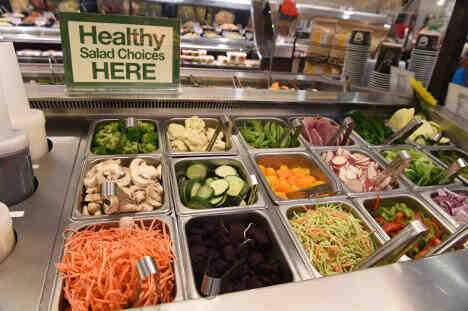
View On WordPress
0 notes